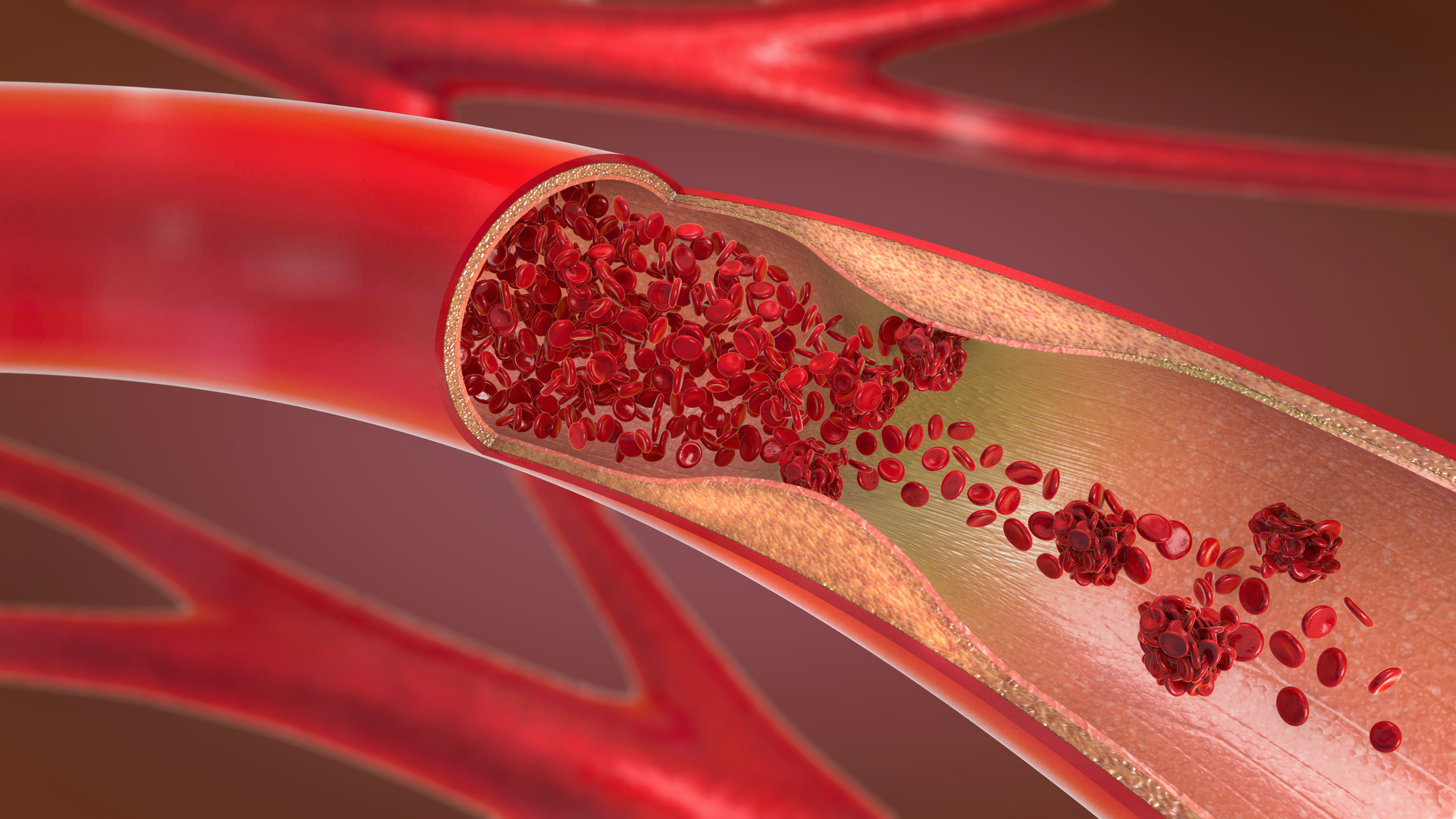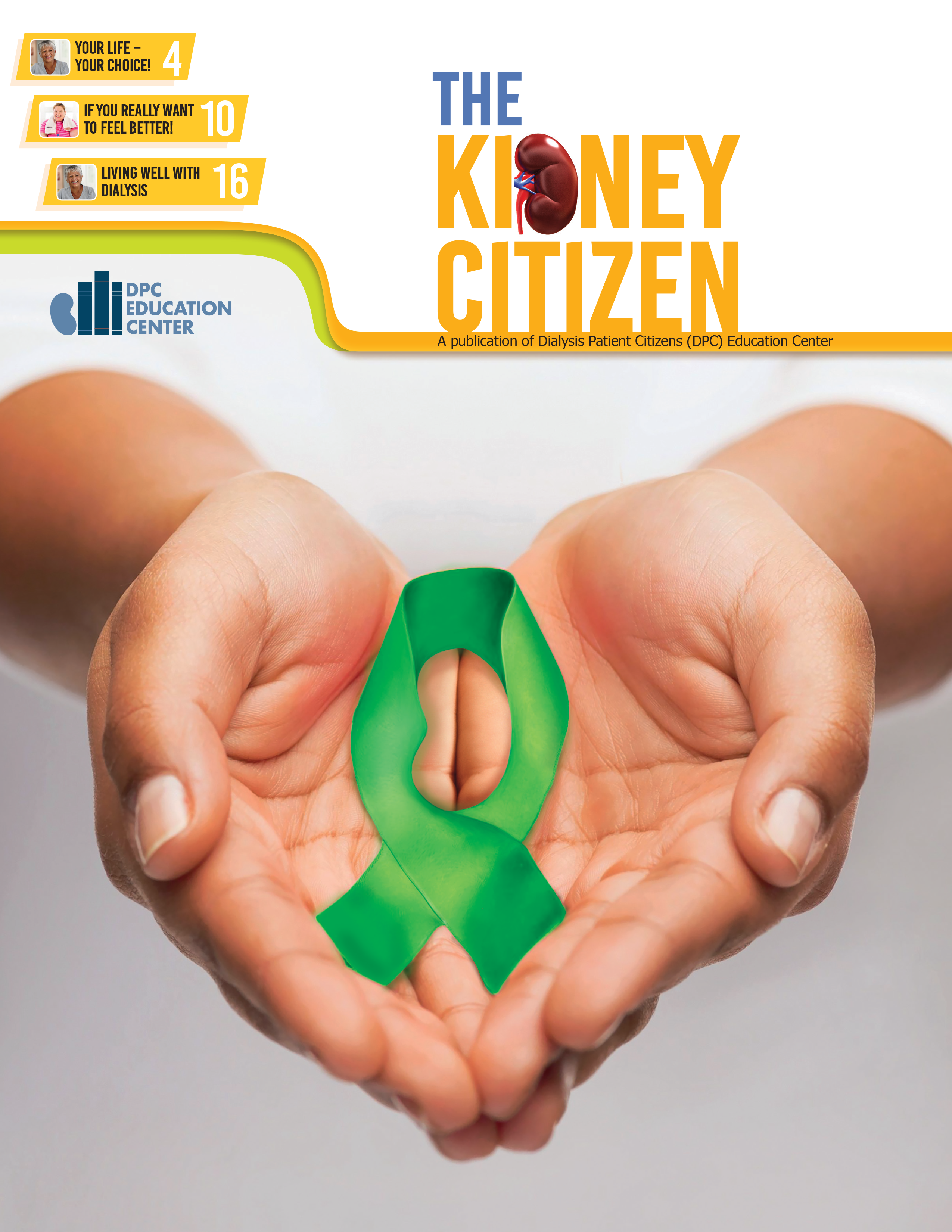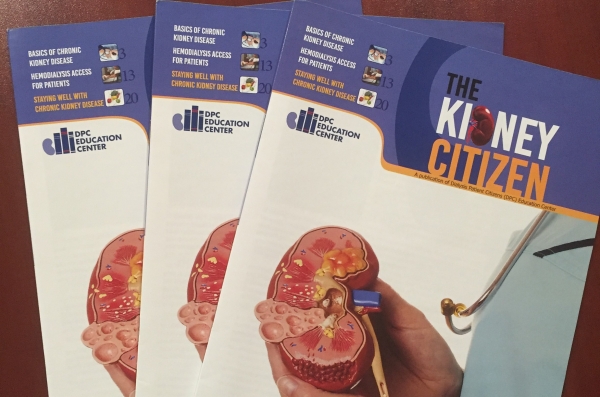News & Events
Discover new information and educational offerings that we provide. Explore our newsletters, blogs and upcoming webinars/conference calls.
Contents:
Anemia Management Recording
If you missed our last call on anemia management, click the link below to view a recording: Watch the recording.
Celebrating Special Days or Holidays
By Kathi Niccum, EdD, Education Director, DPC Education Center Holidays and special days, such as birthdays and anniversaries, occur throughout the year. You may have recently celebrated Thanksgiving and are looking forward to the December holidays. Initially, though, some people new to or struggling with dialysis may find it challenging to celebrate and to feel the joy of the day. They may worry about how to eat a healthy, kidney-friendly meal if visiting friends or relatives or eating at a restaurant. They may find that they get tired easily and have to figure out how to fit dialysis into their special occasions, especially if they want to travel outside of their community. Holidays are a [...]
Holiday Eating Call Recording Available Now!
Were you unable to attend the last education call? Have no fear, the recording is here! Hear from Jessiana Saville as she explores the "ho ho hos" and "no no nos" of holiday eating!
The Kidney Citizen Issue 4
Inside this issue you will find information about one of the rare diseases that can cause kidney disease, Fabry. You'll also find information about getting through the holidays and patient advocacy.
Staying Well During Flu Season
With flu season upon us, it is especially important for you as a chronic kidney disease patient to take precautions to avoid infection. If you are also diabetic, your risk of being hospitalized because of flu increases dramatically. The Centers for Disease Control and Prevention (CDC) has released comprehensive guidelines about avoiding the flu and staying well during flu season. First and foremost, the CDC recommends the flu vaccine for everyone 6 months and older unless told otherwise by a healthcare professional. It is important to note, you cannot get the flu from the flu shot. If you do contract the flu, one possible complication can be pneumonia. For those with chronic diseases, like CKD and diabetes, [...]
November is Family Caregiver Month
By Kathi Niccum, EdD, Education Director of DPC Education Center Let’s celebrate our caregivers this month! Hopefully, we will tell them often how much they mean to us and how much we appreciate their help, yet November is a time to make it “extra special.” For some, their caregiver is a spouse, a daughter or son, a sibling, or a special friend. Our informal caregivers (unpaid folks who assist with activities of daily living and/or medical tasks) help with so many tasks including transportation, medication reminders, doctor visits, coordination of health care, advocacy, and they provide personal emotional support. Caregivers make life easier for the caregivee (person who needs assistance and has healthcare needs). In [...]







